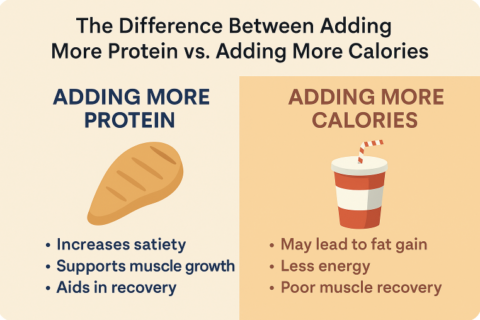Avoid Menopause Weight Gain

This is a topic of conversation with almost EVERY new client we meet…
Menopause, perimenopause, what is happening to my body!!
Let’s start off by uncovering exactly what is happening when menopause hits, or right around it…
Our hormones are changing during this time, which does make it more likely to gain weight or see a shift in our weight to our stomach, hips and thighs.
According to the Mayo Clinic, the weight gained through menopause is usually related to aging, lifestyle and genetic factors.
We lose muscle as we age, yet fat increases. When this happens our metabolism slows down and our body uses LESS calories. So if we continue eating the way we did before, we are likely to gain weight.
Similarly, if our parents carried extra weight around the midsection, we are also likely to carry weight in that area.
Of course there are many other factors that are usually the main reasons why the time around menopause moreso leads to weight
gain. That includes: being sedentary (lack of exercise), unhealthy eating, and not getting enough sleep.
Those who don’t get enough sleep have been proven to consume more calories and snack more through the day. We need sleep to help our bodies recover, and the lack of recovery leads to extra stress on our bodies in waking hours. That stress comes out in the form of cortisol, which is a leading contributor to belly fat 🙁
(Scientific American)
Some of you may wonder if it’s that big of a deal, but should we be worried about weight gain during menopause?
Weight gain around your midsection from menopause can have serious risks such as:
- Trouble breathing
- Type 2 diabetes
- Heart disease
Increases in weight can also lead to increased risks for breast, colon and endometrial cancers.
But there are some habits you can incorporate into your daily life to to try to reverse and/or avoid the unwanted effects of menopause.
- Start moving – Physical activity including aerobic exercise and strength training, can help you shed excess pounds and maintain a healthy weight.
- As you gain muscle, your body burns calories more efficiently — which makes it easier to control your weight. Strength training exercises are recommended at least twice a week. If you want to lose weight or meet specific fitness goals, you might need to exercise more.
- Consume less calories – You may need to consume 200-300 less calories a day in your 40s and 50s as you did in your 20s or 30s to maintain your current weight or to lose weight. Also watch what you are eating or drinking for quality. Choosing more whole grains, veggies and fruit will help keep you satisified with more fiber. Swap butter, margarine and shortening for oils, such as olive or vegetable oil.
- Community – Keep friends and family around that support your lifestyle changes to eat a healthy diet and increase your physical activity. Find a workout buddy with the same goals to keep each other accountable!
- Get your sweet tooth under control – Added sugar accounts for up to 300 calories more a day in most Americans’ diets. Majority of these calories are attributable to intake from sugar-sweetened drinks, sodas, fruit juices, caffeinated energy drinks, and sweeteners added to coffee and tea.
- Other foods that lead to excess sugar intake are cookies, cakes, pastries, donuts, ice cream and candy.
- Alcohol in moderation (or not at all) – Alcohol drinks add excess empty calories to your diet and increase the risk of gaining weight.
Keep in mind, long term weight loss at any age or part of life requires intentional and sustainable changes in diet and exercise habits.
Commitment to a healthy lifestyle can lead to more enjoyment of a healthier you.
See you again soon,
– Brittany


